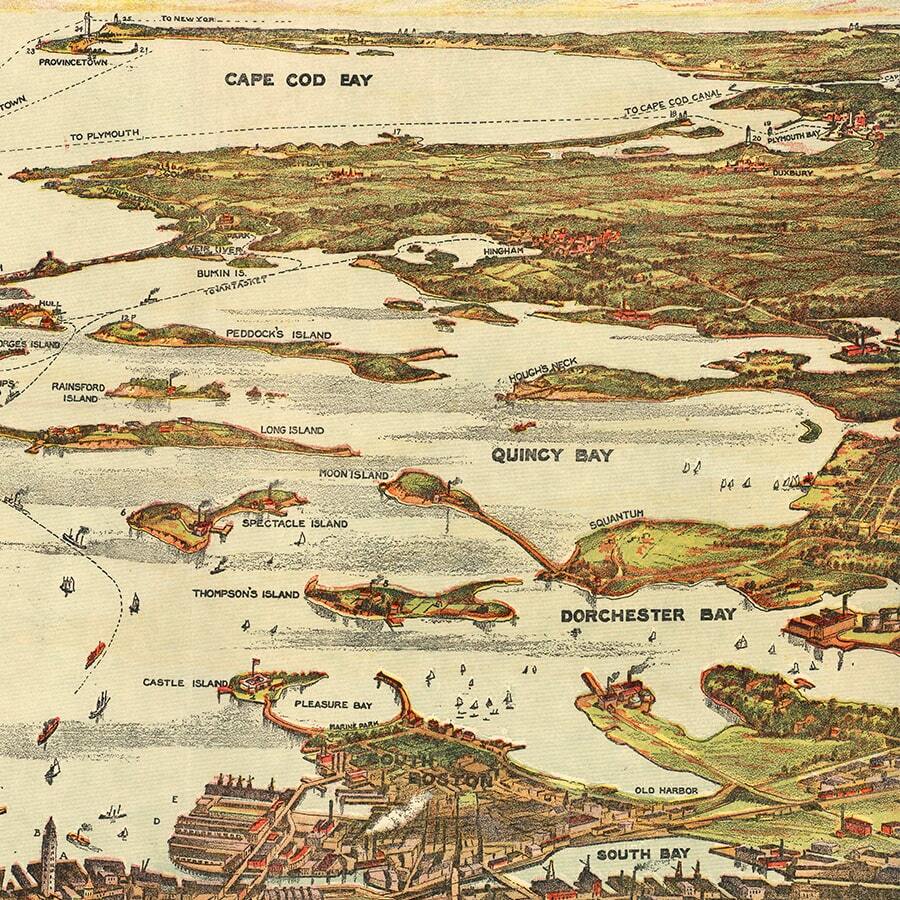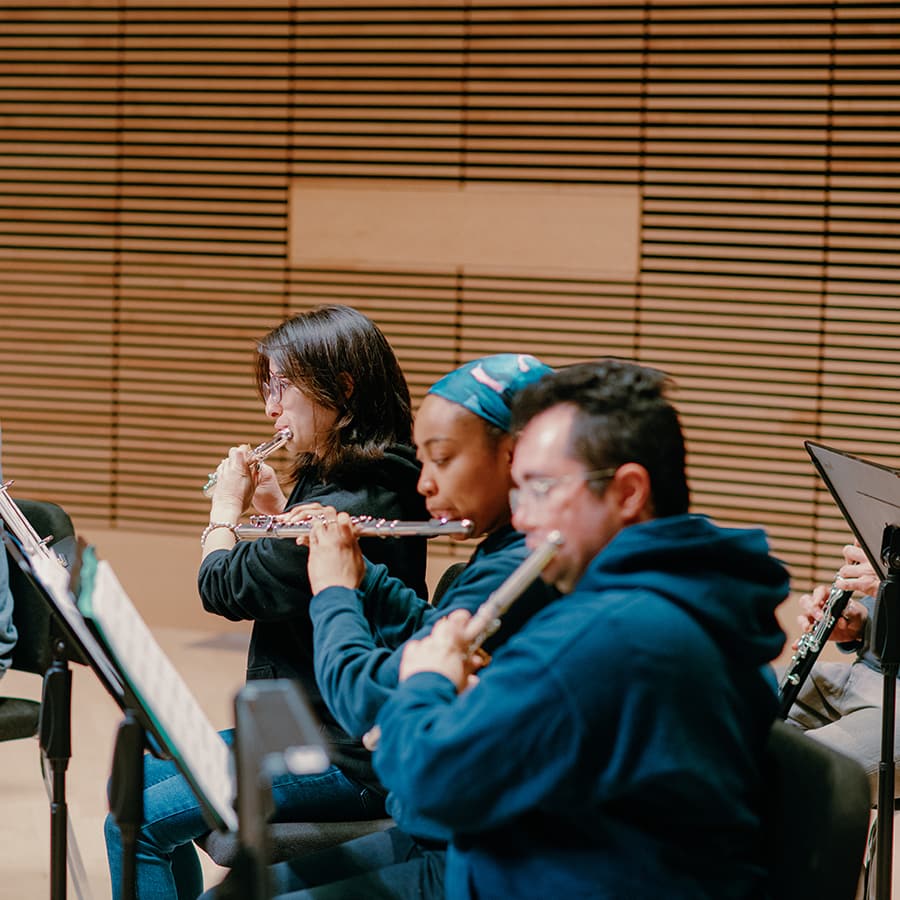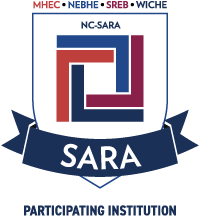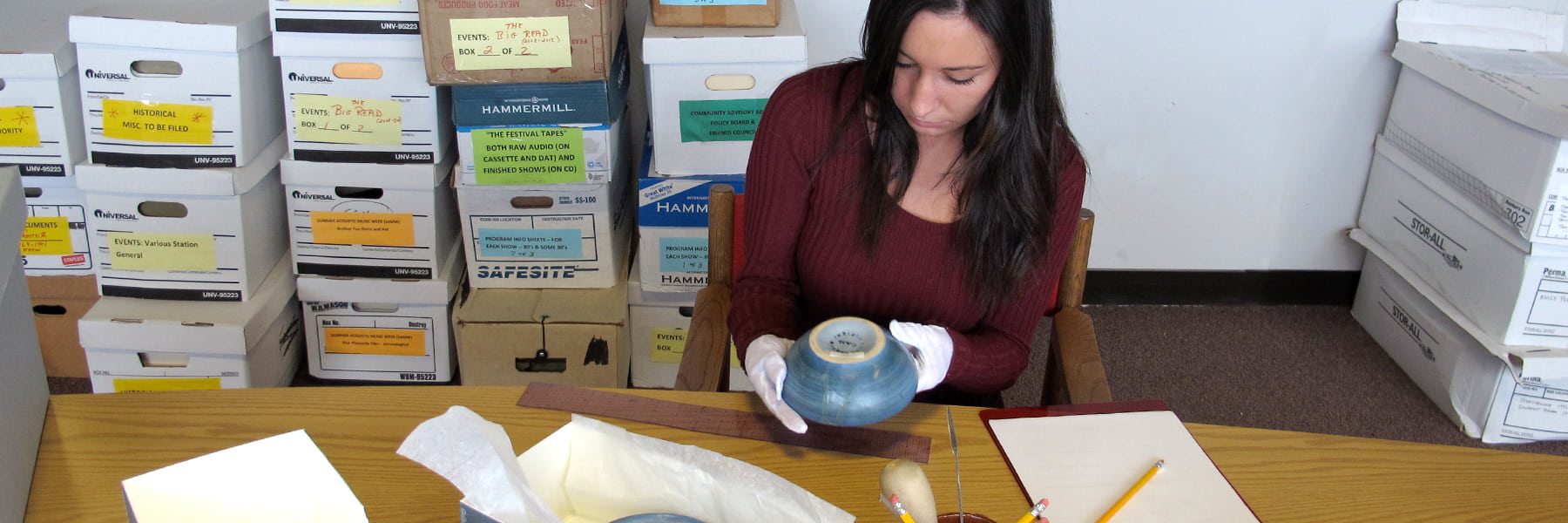Plan Your Education
How to Apply
Applicants must meet general graduate admission requirements in addition to the following program-specific requirements:
- Applications should include: college transcripts, three letters of recommendation, a 1500-word statement of purpose, and a writing sample between 5-10 double spaced pages.
- Graduate Record Examination (GRE) scores are recommended, but not required.
- Applicants will normally be expected to have majored in history as undergraduates and maintained a 3.0 cumulative average in the major. Applicants who did not major in history as undergraduates may be asked to pursue a program of coursework designed to remedy deficiencies in their preparation for graduate study.
- We strongly encourage all interested applicants to contact the program track director. We are happy to discuss the program with you and guide you through the application process.
- We also encourage you to contact faculty whose research and teaching interests align with yours. You may schedule a visit to campus with the Graduate Program Director. Visits to individual classes are also encouraged and should be coordinated with the course instructor.
Deadlines & Cost
Deadlines: February 1 (priority deadline) and April 1 (final deadline for all tracks) for fall
Application Fee: The nonrefundable application fee is $75. UMass Boston alumni and current students that plan to complete degree requirements prior to graduate enrollment can submit the application without paying the application fee.
Estimate Your Program Cost: Get a feel for your expected program costs using the Graduate Program Cost Calculator.
Program Cost Information: Significant tuition discounts are available to students enrolled in the online History MA program, as well as residents of Massachusetts, the other New England states, New York, New Jersey, and Pennsylvania. For more detailed information on costs, visit the Bursar's website for more information.
Assistantships: Each year, the History Department offers a limited number of Graduate Assistantships to newly admitted graduate students. Assistantships are “half-time”, which means students are expected to work 9 hours per week for the academic year. As compensation, graduate assistants receive a bi-weekly stipend. Graduate Assistants also receive a 100 percent tuition remission for the contract period and a 50 percent waiver of their Educational Operations Fee. There are some remaining student fees that Assistants have to pay. If Assistants get their health insurance through the university, they will also receive a discount on their Health Insurance Premium.
Assistants work as teaching assistants or research assistants. Teaching assistants are assigned to professors who teach large lecture sections. These assistants will assist with grading and general operation of the class. They may be asked to do research work for their professor. Research assistants are usually assigned to faculty members to assist them with their research projects. Other assistants may be assigned to the Graduate Program Director, the Undergraduate Program Director, the Public History Director, and the University Archives. Each year, one Graduate Assistant is assigned to assist the editors of the New England Quarterly, which is housed at UMass Boston. Online MA students are not eligible for Graduate Assistantships.
You do not need to specify your interest in an Assistantship. All admitted students will be considered for an assistantship. Admitted students will receive notification of an assistantship award after they are formally accepted into the program.
History Track (In-Person or Online)
UMass Boston's Master of Arts in History offers a rigorous set of individually selected courses and supervised research and writing. Both demanding and flexible, the history track is designed for students who intend to pursue a PhD, secondary school teachers who wish to improve their knowledge of the field, and students who seek to test their capacity for graduate work.
Knowledge of a foreign language is not required for the Master of Arts in History. Thesis advisors may require a foreign language if they determine that competence in a particular language is necessary for students to conduct research on the topic on which a student will write his or her thesis. In that case, students must demonstrate competence in the foreign language to the satisfaction of their advisors.
The History MA program offers an online MA. Online courses are available to students enrolled in the traditional History MA program.
View the History MA curriculum
The History Department also offers Certificate in Public History and a Certificate in History. A Certificate is not an MA degree, but it can be earned while also earning a History MA.
Public History Track (In-Person)
Public historians study the way we remember and interpret the past. They use historical methodologies to preserve, collect, present, and interpret history with and for public audiences. Public historians work with historic landscapes, sites, parks and monuments; in museums and historic buildings; on film and the internet; and with community groups and organizations, families, and institutions.
They study public awareness and consciousness of the past and how various actors, including public intellectuals and public interest groups, seek to “raise” historical consciousness and nurture historical thinking.
Training in historical methodology is a crucial foundation for practicing public historians. That is reflected in the structure of this program—public history students earn an MA in History rather than a specialized MA in Public History. Public History students need to gain strong subject-area knowledge and research skills, as well as an introduction to the theory and methods of public history. This model provides a cross-disciplinary approach that benefits professional training for public history students.
View the Public History track curriculum
Professional Training and Development
Training as a public historian requires engagement outside the classroom. We support student exploration of the field, learning from seasoned professionals and peers, developing their own career goals and next steps, and building professional networks. To these ends, the Public History Track requires students to participate in four skills-based or professional development activities outside of the curriculum during the course of their graduate career. Even students attending UMass Boston part-time should be able to meet the requirements before graduation if they undertake one professional development activity per semester.
Participation in extra-curricular workshops, institutes, webinars, conferences, and historical organizations helps students move from the academy into the professional world, and offer opportunities to explore practices in the field with minimal commitment. Students should inquire with the Director of Public History before selecting a specific opportunity. Only one of four activities can be virtual (except during public health crises). These opportunities will offer Public History students familiarity with and training in a variety of professional skill areas important in the work of public historians, and provide crucial venues and practice in networking.
Professional development opportunities are active in nature. They might include organizing, presenting or moderating at conferences, and participating in workshops, webinars, and other career development opportunities sponsored by relevant organizations such as NEMA, Mass Humanities, NCPH, AASLH, AAM, SAA, OHA, AHA or OAH. Students may elect to join one of these organizations to take advantage of their multiple program offerings. Our students have gained professional development by volunteering (both short and longer term commitments) for local historical organizations, serving on committees of public history organizations, taking advantage of workshops on relevant skills outside our curriculum, as well as traditional professional development strategies such as informational interviewing and working with the career center and professionals on writing a strong resume. These are only a few examples of relevant professional development activities.
Students may be asked to write a short reflection on one or each of these events and post it on our Public History Wordpress site along with at least two relevant images. Please contact your graduate advisor if you have questions about appropriate activities or necessary documentation of participation.
Programs that are passive in nature (such as simply attending an academic lecture or conference, or visiting a museum) are not considered skill-based and will not be accepted as fulfilling this requirement.
Below are some examples of what can be considered "skill-based programs". As the list demonstrates, students can participate in these programs at little to no cost.
- Volunteer. Many local public history organizations are in dire need of assistance. Students should consider volunteering for an organization and filling a much needed gap. These can be longer or short term commitments.
- Network. As a New England Museum Association (NEMA) member, a student can participate in one of the Young and Emerging Museum Professionals events. These events are geared towards professionals who have been in the field for less than ten years, and they are meant to serve as "networking and educational opportunities".
- Workshop. Northeastern University hosts a Boston Digital Humanities Listserv. They periodically offer graduate students, faculty, staff, and enthusiasts workshops on digital humanities skills. Other regional and local professional organizations offer skill-focused workshops and webinars.
- Present Research. Most public and local history conferences offer graduate students the opportunity to present their research or their work on a special program.
- Organize Event. In addition to presenting at a history conference, students can also gain many skills by organizing a history conference. Therefore students who actively participate in several conference organizing activities can count this activity towards their professional development. In this context, actively participating includes, but is not limited to, attending organizing meetings, engaging in decision-making processes, coordinating themes, ideas, and speakers/panels, and aiding in the execution of the actual conference.
- Grant Writing. Grant writing is an important skill set for public historians. Students can learn about the grant-writing process by assisting either an on-campus or a local organization with a grant application.
- Work in Committees. Some professional organizations and historical organizations provide opportunities for student or volunteer participation on committees.
- Interview Professionals. Before leaving UMass Boston, students should begin thinking about potential workplaces and career goals. Students are encouraged to contact an organization and engage in an informational interview where they can ask advice on professional preparation and career goals, the industry, professional specializations, and workplace culture.
- Meet with Career Services. Students should take advantage of UMass Boston’s Career Services. Students can make appointments to meet one-on-one with counselors about resumes/CVs, cover letters, or mock interviews.
- Assist in Public Programming. Support young historians by judging for a Massachusetts History Day competition.
- Volunteer. Help document people, places, and events in Massachusetts history for University Archives and Special Collections, Healey Library’s digital history project. Spend a day volunteering for the Mass Memories Road Show, which creates a digital portrait of the state’s history and culture, community by community.
- Learn a new skill. Get to work on filling your ever-expanding public historian’s toolkit. Take advantage of opportunities to learn some new software that will serve you well in public history, such as WordPress, Omeka, PastPerfect, GIS, Raisers’ Edge, to name only a few. You may not learn these in your classes, but you will use them in your career.
There are multiple opportunities out there for aspiring public historians. Students should consult with the Public History faculty/staff before participating in a program to ensure that such a program meets the requirements.
In order to receive credit for the Professional Training and Development requirement, students must submit proper documentation (confirmation letter, receipt, name tag, etc.) and a one page description of the activity OR a blog post with images to the Director of Public History, who will keep track of student progress. Submit documentation and blog posts within two weeks of participation.
Students who write a Thesis must complete the Professional Training and Development requirement before they schedule a thesis defense. Students who write a Capstone will not receive their final Capstone grade until they have completed the Professional Training and Development requirement.
The History Department also offers Certificate in Public History and a Certificate in History. A Certificate is not an MA degree, but it can be earned while also earning a History MA.
Curriculum - History Track
UMass Boston's Master of Arts in History offers a rigorous set of individually selected courses and supervised research and writing. Both demanding and flexible, the history track is designed for students who intend to pursue a PhD, secondary school teachers who wish to improve their knowledge of the field, and students who seek to test their capacity for graduate work. The program is designed to accommodate teachers with a demanding schedule but who wish to pursue their MA part time.
Those who desire to pursue advanced study for their own intellectual enjoyment and development can also benefit from the program's design, and the department welcomes prospective students who have been out of school for a long time or who have majored in other areas of study and now wish to pursue the study of history.
All graduate courses consist of small seminars of no more than fifteen students, which affords all students close faculty attention and support. Not all students enter the graduate programs in history directly from college: the student body includes individuals who beginning graduate work after long absences from school. Applicants do not need to have majored in history as undergraduates, but they may be asked to pursue a program of coursework designed to remedy deficiencies in their preparation for graduate study.
Knowledge of a foreign language is not required for the Master of Arts in History. Thesis advisors may require a foreign language if they determine that competence in a particular language is necessary for students to conduct research on the topic on which a student will write his or her thesis. In that case, students must demonstrate competence in the foreign language to the satisfaction of their advisors.
For those writing a Thesis:
- HIST 600: Research and Methods
- HIST 605: Introduction to Historiography
- HIST 690: Final Project Prep (Students should have at least 18 credits before taking FPP)
- HIST 699: Thesis
- Five electives, two of which can be upper-level undergraduate courses (300 level or higher)
For those writing a History Review Essay:
- HIST 600: Research and Methods
- HIST 605: Introduction to Historiography
- HIST 690: Final Project Prep (Students should have at least 18 credits before taking FPP)
- HIST 693: History Review Essay
- Six electives, two of which can be upper-level undergraduate courses (300 level or higher)
Thesis
The thesis stands as the traditional culmination of a student's graduate work, and students who wish to pursue a PhD should plan to write a thesis. The thesis should be approximately 50-70 pages long and based on original research. It should be the equivalent to an article in a scholarly journal. Theses are written under the guidance of an individual faculty advisor and defended before a committee of three faculty members, one of whom may be from outside the department. For more information on thesis requirements, see the Graduate Program Handbook.
History Review Essay
The History Review Essay is an alternative to the thesis. This option is only for students in the History Track. These essays are 25-30 page reviews of existing literature that demonstrate wide, deep reading in and extensive knowledge of the student's chosen field. They are equivalent to the 'state of the field' essays that appear regularly in scholarly journals. Essays showcase the student's ability to synthesize, analyze, and evaluate secondary texts by asking critical questions about historiography, research methods, sources, and theory. History Review Essays are as challenging as theses, but highlight different skills. They are especially appropriate for those who do not plan future academic publications, for teachers looking to synthesize a broad range of scholarship, and for those who do not have ready access to primary source repositories.
For more information on curriculum, including course descriptions and degree requirements, visit the Academic Catalog.
Curriculum - Public History Track
Public historians study the way we remember and interpret the past. They use historical methodologies to preserve, collect, present, and interpret history with and for public audiences. Public historians work with historic landscapes, sites, parks and monuments; in museums and historic buildings; on film and the worldwide web; and with community groups and organizations, families, and institutions.
They also study public awareness and consciousness of the past and how various actors, including public intellectuals and public interest groups, seek to "raise" historical consciousness and nurture historical thinking.
Training in historical methodology is a crucial foundation for practicing public historians. That is reflected in the structure of our program--public history students earn an MA in History rather than a specialized MA in Public History. Public History students need to gain strong subject-area knowledge and research skills as well as an introduction to the theory and methods of public history. This model provides a cross-disciplinary approach that benefits professional training for public history students.
Students in the Public History Track complete 30 credit hours for the History MA. Students in the Public History Track have the option of writing a Thesis or completing a Capstone project.
For those writing a Thesis:
- HIST 600: Research and Methods
- HIST 605: Introduction to Historiography
- HIST 620: Introduction to Public History and Popular Memory
- HIST 625: Interpreting History in Public: Approaches to Public History Practice
- HIST 698: Internship in Public History
- HIST 690: Final Project Prep (Students should have at least 18 credits before taking FPP)
- HIST 699: Thesis
- Two electives
For those writing a Capstone:
- HIST 600: Research and Methods
- HIST 605: Introduction to Historiography
- HIST 620: Introduction to Public History and Popular Memory
- HIST 625: Interpreting History in Public: Approaches to Public History Practice
- HIST 698: Internship in Public History
- HIST 689: Capstone
- 4 electives
Professional Training and Development Requirement
Public History students must also complete 4 professional training and development activities by actively participating in hands-on opportunities to learn from seasoned practitioners and peers, explore potential career paths, and build professional skills and networks.
For more information on curriculum, including course descriptions and degree requirements, visit the Academic Catalog.
Learning Outcomes
History MA track students will be able to:
- Engage with international and intercultural perspectives on the study of the past.
- Express their ideas according to the norms of professional historians and demonstrate their sensitivity to audience in their writing and speaking.
- Make original arguments using primary sources, including both printed and archival materials.
- Demonstrate proficiency at analyzing historiography relevant to their research interests, identifying themes and trends.
- Know how to document their research according to prevailing professional standards, including use of the current edition of The Chicago Manual of Style for all citations.
Public History MA track students will develop the skills essential to all historians, as indicated above. In addition, Public History graduates will:
- Demonstrate knowledge of public history theory, the literature of the field and ethical practice, the environments of public facing work, and the issues that confront public historians in the field, through completion of public history coursework and field experiences.
- Be able to put public history theory into practice in public facing projects and environments, applying methods and skills in analysis and interpretation that makes history accessible to public audiences, through internship(s) and a culminating capstone or thesis project.
- Have built professional knowledge and networks through participation in professional communities of relevant organizations, in professional and/or academic conferences central to the field, in advocacy efforts, and/or in public history initiatives in the community.
Graduation Criteria
Complete 30 credits which include 6 or 8 required courses and 4 or 2 electives, depending on choice of capstone or thesis.
Capstone: Completion of a master’s thesis or capstone project.
Track: Students may select a track in history, public history.
Minimum grade: No course with a grade below C may be applied toward the program. No more than one course with a grade below B- may be applied toward the program.
Residency: With approval of the graduate program director, no more than six credits from another institution may be applied toward the elective requirements for the online History, MA degree.
Statute of limitations: Five years.
Contact
Graduate Program Director Kelly Colvin
kelly.colvin@umb.edu
(617) 287-6860
Director of the Public History Track Jane Becker
jane.becker@umb.edu
(617) 287-6885

History Department
The History Department equips students for success by exploring how past societies grappled with complex challenges. It explores how people have structured & managed their relationships with one another; how and why those structures and relationships changed over time; and how globalization has shaped life, identity, opportunity, and justice. Studying history deepens our understanding of the human condition and of how the past continues to shape our lives today.
Explore the Department of History
College of Liberal Arts
Learn more about the faculty, research, and programs that make up our College of Liberal Arts.
Explore the College of Liberal ArtsNational Council for State Authorization Reciprocity Agreements (SARA)

UMass Boston programs are designed to meet the requirements for licensure or certification in Massachusetts. Please contact your state licensing or certification board to determine whether the program meets the requirements for licensure or certification in other states.
Learn More about SARA
